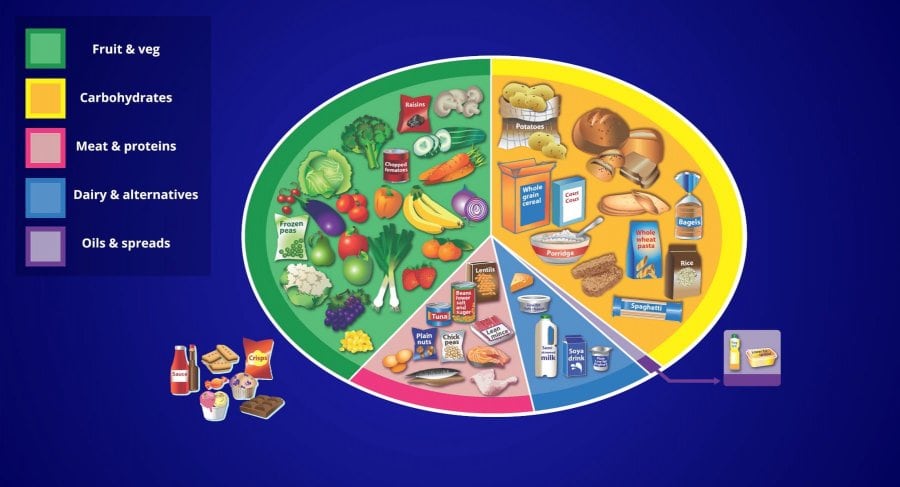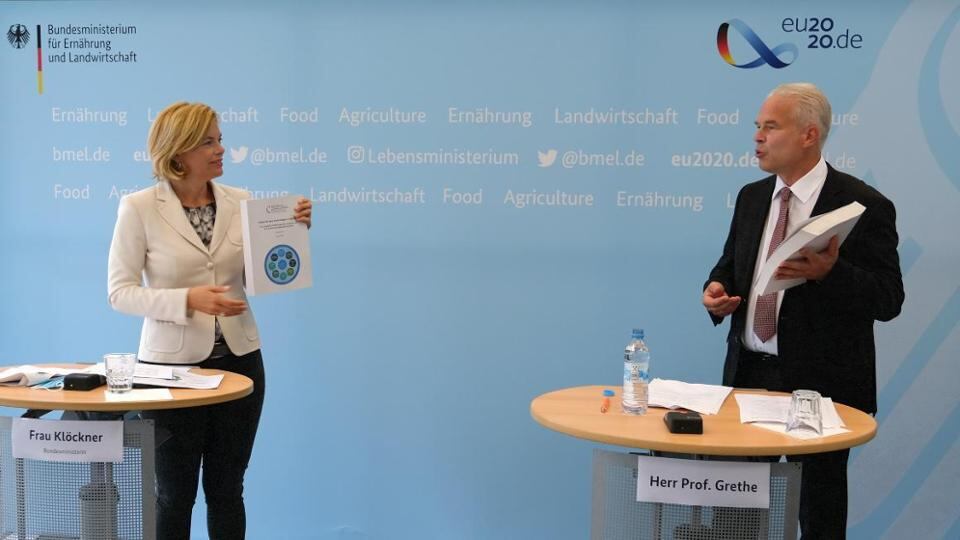The research -- led by the London School of Hygiene & Tropical Medicine in collaboration with the University of Oxford and funded by the Wellcome Trust -- found that people who adhered to any five or more of the recommendations set out in the guidelines had an estimated 7% reduction in their mortality risk.
The recommendation associated with the largest reduction, when adhered to alone, was the consumption of fruit and vegetables which reduced estimated risk by 10%.
The study also claimed that following Eatwell Guide recommendations could reduce the emission of greenhouse gases. Diets that adhered to between five and nine of the evaluated recommendations were associated with 1.6kg less CO2 emissions per day, a 30% reduction compared to average daily CO2 emissions of diets that adhered to up to two of the nine evaluated recommendations.
However, data from the National Diet and Nutrition Survey revealed that less than 0.1% of people follow all nine guidelines. Most people (44%) followed three or four of the recommendations, with the consumption of dietary fibre and oily fish being the least commonly met category.
The government’s Eatwell Guide, published in 2016, provides advice on balanced and healthy diets. The recommendations include advice to consume five portions of fruit and vegetables per day, wholegrain, higher fibre carbohydrates and lower fat and sugar dairy options. It also recommends consumption of no more than 70g of red and processed meat a day, and replacing meat with lower fat, higher fibre proteins such as beans, pulses, fish and eggs.
Other recommendations include choosing unsaturated oils and spreads, limiting consumption of foods high in fat, salt and sugar, and drinking six to eight glasses of fluid every day.
Previous studies have shown that fruit, vegetable and fibre consumption, in combination with limited sugar and processed meat intake, is associated with improved cardiovascular health and reduced cancer risk.
Dr Pauline Scheelbeek, Assistant Professor in Nutritional and Environmental Epidemiology at the London School of Hygiene & Tropical Medicine (LSHTM) and study lead author, said: “Our study demonstrates that the Eatwell Guide forms an effective first step towards more healthy and sustainable diets in the UK. Further adherence to the guidelines would not only result in population health benefits, but is also associated with lower environmental footprint due to reduced greenhouse gas emission.”
The Eatwell Guide does not specifically target the environmental sustainability of diets. However, the research team used greenhouse gas emissions and water footprints – the amount of ground or surface water a crop or livestock used – to estimate the total environmental footprint of the diets. The dietary water footprints of those with low to high adherence to the recommendations differed very little.
The authors acknowledged limitations in the analysis. The authors did not rank dietary recommendations, and their analyses assumed that all recommendations had equal value, regardless of which were adhered to. Finally, despite the fact that large UK-based studies were used for this analysis, the exact impact of adhering to specific dietary guidelines on disease and mortality risk is subject to some uncertainty.
Source: BMJ Open
'Sustainable food systems & diets in the UK: The Eatwell Guide as a blueprint for healthy and sustainable diets in the UK'
DOI:10.1136/ bmjopen-2020-037554
Authors: P.F.D. Scheelbeek, R. Green, K. Papier, A. Knuppel, C. Alae-Carew, A. Balkwill, T. Key, V. Beral & A.D. Dangour.



